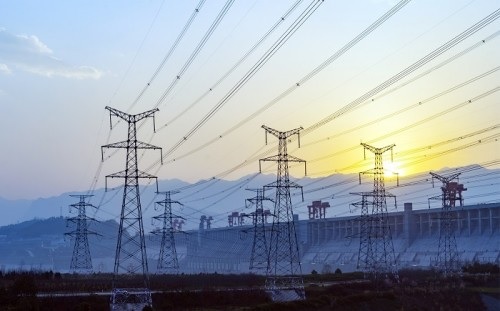Power Sector Update - One Nation, One Grid and towards One Price By ICICI Securities

One Nation, One Grid and towards One Price
Ministry of Power (MoP) has recently released a discussion paper on the implementation of Market-Based Economic Dispatch (MBED). The paper argues for redesigning of dayahead scheduling of electricity markets in the country on a market based / integrated approach in order to realise the ‘One Nation, One Grid, One Frequency, One Price’ framework. It also proposes the implementation of MBED phase-I starting with the entire fleet of NTPC’s thermal stations from 1st Apr’22.
Although there may be changes once stakeholders share comments, as per our initial understanding, MBED is a wider scoped SCED, which is already operational, and will result in more efficient utilisation of low cost generating capacity across the country, and thereby, reduce tariffs for discoms and consumers. Earlier, it was only for ‘cost-plus’ assets but will now be for all power plants. Gencos (central and private) and discoms are expected to benefit from this move. NTPC, CESC and PTC India remain our top picks in the sector.
* Draft paper argues for a market-based approach for scheduling and operations of electricity markets in India:
CERC had first highlighted the constraints in the current practice of self-scheduling and the rationale for a market-based approach to scheduling in its discussion paper on MBED in Dec’18. It had proposed redesigning of day-ahead scheduling and operations of electricity markets based on the following objectives:
1) Meeting the system load with least-cost and efficient-generation plants, 2) uniform pricing framework to encourage efficient capacity generation addition in the future and 3) facilitate increased variable RE integration through larger balancing area and reserve sharing. With India no longer constrained on inter-regional transfer of electricity, a national merit-order and a country-wide balancing area should be the next step, as per the paper.
* MBED is a wider-scoped version of SCED with modifications:
Currently, SCED’s scope (valid till Sep’21) covers system cost optimisation only after final schedules are prepared and units are committed. The framework does not alter the commitment of generating units on a day-ahead basis and thus, costlier generators once committed, continue to operate. But the proposed MBED mechanism shall schedule and commit generation on day-ahead basis, purely on economic principles (subject to technical constraints).
This will lead to further optimisation and cost savings, as costlier generating units committed currently may not be scheduled at all under MBED. As per the paper, implementation of a full-fledged MBED requires policy, regulatory and operational changes, which is why a phase-wise approach is being adopted. (See Annexure-2)
* Phase-I will start from 1st Apr’22 with NTPC thermal stations:
Proposed phase-I implementation starts from 1st Apr’22 with NTPC’s thermal stations, with the following objectives: 1) Test the efficacy of the proposed mechanism, 2) identify the potential issues/deficiencies prior to nation-wide implementation, 3) familiarise participants and stakeholders with market dynamics and 4) test the value drivers of MBED.
* Substantial cost savings estimated:
CERC’s estimate of cost savings for five states, viz., Andhra Pradesh, Telangana, Maharashtra, Karnataka and Chhattisgarh, post phase-I implementation is Rs18.3bn p.a., at average 3.74% benefits in power procurement costs (more than double vs SCED benefits estimated at Rs9bn p.a.). If extended to the entire country, estimated savings are Rs123bn p.a. Optimisation benefits can reach 12-15%, if unit commitment related benefits are also captured in day-ahead mechanism.
* Our view:
MBED still being at a draft stage, stakeholders’ comments will be important. We do not expect any changes in PPAs; however, it will be interesting to see whether PPAbased buyers will be ready to pay exchange charges. Further, working capital funding for buyers will be key as the entire power tied-up with NTPC plants will be transacted on exchanges and require upfront payment from discoms (up to Rs1.5bn/day) rather than 45- days post monthly billing practice. WCap funding rates will not only depend on the quantum of power purchased but also in the state’s credit-worthiness. States which still do not follow merit-order will be the most impacted.
Key beneficiaries will be central as well as efficient low-cost private generating stations, while discoms will benefit on account of lower power purchase costs. Implementation of this proposal remains a challenge as states may oppose their gencos losing out on PLF, as well as legal issues related to multiple operational PPAs. Also, as demand increases going ahead, and we achieve a demand-supply equilibrium in medium term, prices discovered may increase significantly in spot markets.
To Read Complete Report & Disclaimer Click Here
For More ICICI Securities Disclaimer https://www.icicisecurities.com/AboutUs.aspx?About=7
Above views are of the author and not of the website kindly read disclaimer




















